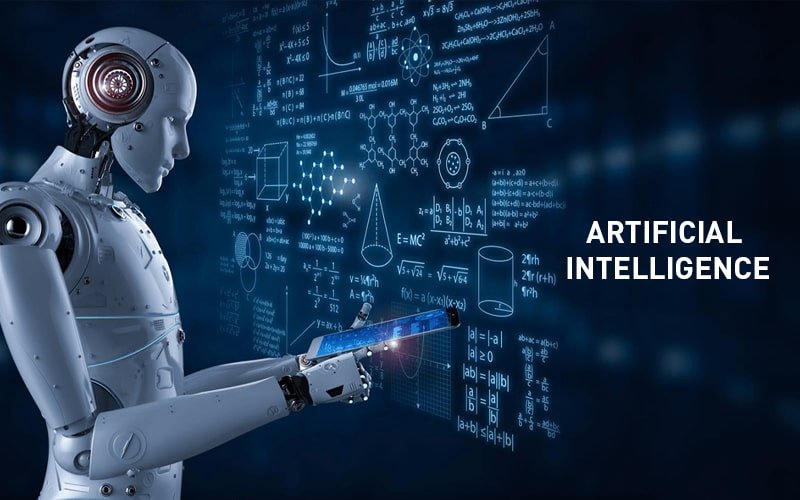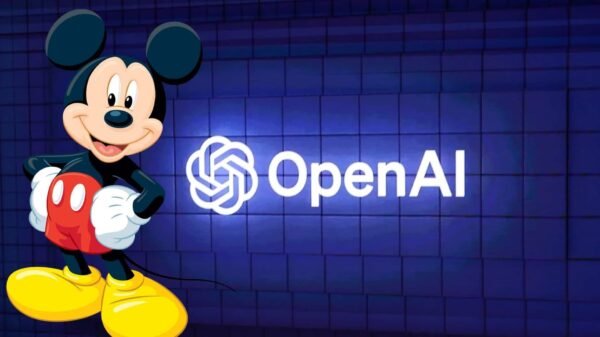Embracing AI in Education: Learn how cutting-edge educational technology for academic enhancement is utilizing artificial intelligence to transform academia and education.
ESSENTIAL NOTES
Personalized Learning: Embracing AI in Education is revolutionizing education by allowing students to have individualized learning experiences and by providing content and assessments that are catered to each student’s needs.
Educator Support: Embracing AI provides educators with useful information and tools to improve their efficiency in the classroom, like AI-powered teaching assistants and data-driven feedback.
Ethics: The use of AI in education brings up significant ethical issues with data privacy, bias, and justice. These issues need to be carefully considered, and proactive solutions need to be found for responsible deployment.
In today’s rapidly evolving educational landscape, artificial intelligence (AI) stands as a transformative force, revolutionizing the way you approach learning and academics. With the advent of education technology, AI is not just changing the game; it’s rewriting the entire playbook.
This article delves into the dynamic world of AI used in education and academics, where innovation meets intellectual growth. Imagine a classroom where every student’s unique learning needs are not only recognized but also met with precision, thanks to AI’s prowess in personalized education.
Picture educators armed with AI-powered tools that empower them to excel in their teaching roles, enhancing both student engagement and academic outcomes. But, as you dive into this exciting journey, it’s crucial to explore the ethical considerations that come with it, such as data privacy and bias.
Embracing AI in education enhancement as you uncover its potential, the tools it brings to the table, and the ethical compass guiding its integration into your educational future.
The Benefits of AI in Education: Enhancing Learning Experiences In the realm of education, artificial intelligence (AI) has emerged as a game-changer, offering a multitude of benefits that profoundly enhance learning experiences.
Personalized Learning Paths One of the standout advantages of AI in education is its ability to create personalized learning paths for students. Traditional classrooms often struggle to address the diverse needs of individual learners. However, embracing AI systems can analyze a student’s strengths, weaknesses, and learning styles to tailor educational content accordingly. This personalization ensures that each student progresses at their own pace, resulting in a more engaging and effective learning journey.
Adaptive Assessments Traditional assessments can sometimes be a one-size-fits-all approach, failing to accurately gauge a student’s true understanding. AI brings a solution to this challenge through adaptive assessments. These assessments dynamically adjust their difficulty based on a student’s performance, ensuring that they are appropriately challenged but not overwhelmed.
As a result, educators receive more accurate insights into each student’s knowledge, allowing for targeted interventions when needed. Supporting educators with AI doesn’t just benefit students; it also offers invaluable support to educators, making their roles more efficient and effective.
AI-Powered Teaching Assistants Imagine having a virtual teaching assistant who never sleeps, tirelessly helping teachers with administrative tasks, grading, and even answering common student queries.

AI-powered teaching assistants are becoming a reality in education. They can provide immediate assistance, freeing educators to focus more on actual teaching, mentoring, and fostering a nurturing classroom environment. Data-Driven Insights for Teachers: Education technology equipped with AI provides educators with an unprecedented level of data-driven insights.
By analyzing student performance data, AI can identify patterns, trends, and areas where students may be struggling. Armed with this information, teachers can tailor their instructional strategies to address specific needs, ultimately leading to improved student outcomes.
Incorporating AI in education not only enhances learning experiences for students but also empowers educators to excel in their roles. These advancements represent a significant step towards achieving academic enhancement through the intelligent integration of technology.
AI-Driven Tools and Resources Artificial intelligence (AI) has introduced an array of cutting-edge tools and resources in the field of education, revolutionizing the way students learn and educators teach. AI-powered EdTech education technology, infused with AI capabilities, is at the forefront of this transformation, offering a myriad of benefits to both students and teachers.
Interactive Learning Platforms AI-driven interactive learning platforms are redefining the classroom experience. These platforms provide students with engaging and immersive learning environments, incorporating multimedia elements and interactive activities that cater to various learning styles.
By adapting content in real-time based on a student’s progress and preferences, these platforms ensure that education remains engaging and relevant. AI-Enhanced Curriculum Traditional curricula can often become static and outdated. AI, however, keeps educational content dynamic and up-to-date.
By continuously analyzing data on emerging trends and academic developments, AI helps educators refine and enhance their curriculum, ensuring that students are equipped with the latest knowledge and skills required in their respective fields.
AI in Student Support AI doesn’t stop at content delivery; it also provides valuable support to students in their learning journey.
AI Tutors and Virtual Assistants Imagine having a personal tutor available 24/7 to answer questions, explain complex concepts, and provide additional practice exercises. AI-driven virtual tutors make this a reality.
These intelligent systems can provide immediate feedback and guidance, helping students navigate their coursework effectively. Whether it’s math, science, or language learning, AI tutors offer personalized assistance, fostering independent and confident learners.
AI-Driven Academic Counseling Choosing the right educational path and career direction can be daunting for students. AI-driven academic counseling tools analyze a student’s strengths, interests, and academic performance to provide tailored guidance.
These tools can suggest suitable majors, courses, and career options, helping students make informed decisions about their academic and professional futures.
Incorporating AI-driven tools and resources into education not only enriches the learning experience but also empowers students with personalized support. Challenges and Ethical Considerations While artificial intelligence (AI) holds great promise for revolutionizing education and academics, it also presents several challenges and ethical dilemmas that require careful consideration. Ethical Dilemmas in AI Education: Data Privacy Concerns One of the foremost ethical concerns in AI education revolves around data privacy.
Education technology powered by AI relies heavily on collecting and analyzing vast amounts of student data. This raises questions about how this data is collected, stored, and used. It’s crucial to establish robust data privacy policies and ensure that students’ personal information remains secure and confidential.
Bias and Fairness in AI Another significant concern is the potential for bias in the AI algorithms used in education. If the data used to train AI systems contains biases, these biases can be perpetuated in educational outcomes. This raises questions about fairness and equity in education.
Addressing bias in AI algorithms is imperative to ensure that all students have equal opportunities and access to quality education. Overcoming Implementation Challenges Implementing AI in education comes with its own set of challenges that need to be addressed for successful integration.
Training and Resources Many educators may not be familiar with AI technology and its applications in the classroom. Providing adequate training and resources to teachers is essential to ensuring they can effectively use AI-powered tools and platforms.
This training should cover both the technical aspects of AI and its pedagogical applications. Teacher and Student Acceptance Acceptance and adoption of AI technology can be met with resistance from both educators and students. Some may be skeptical about the role of AI in education or fear that it might replace human teachers.
It’s crucial to communicate the benefits of AI in education and involve educators and students in the decision-making process to address concerns and build trust. Overall, while AI holds immense potential to enhance education and academics, it must be implemented thoughtfully and ethically.
Addressing data privacy, bias, and fairness concerns, along with providing training and fostering acceptance, are crucial steps in harnessing the power of AI for academic enhancement.
Embracing AI in Academia Beyond the Classroom Artificial intelligence (AI) is not confined to the classroom; it extends its influence into various aspects of academia, from streamlining administrative tasks to preparing students for the AI-driven world.
AI in Research and Administration Streamlining Administrative Tasks AI technology is revolutionizing administrative tasks in educational institutions. Tasks such as admissions, enrollment management, and resource allocation can be time-consuming and resource-intensive.
Embracing AI systems can automate these processes, reducing administrative burdens and improving efficiency. This not only saves time and resources but also ensures that administrative decisions are data-driven and optimized for academic enhancement.
AI in Academic Research In the realm of academic research, AI offers invaluable assistance. AI algorithms can process vast datasets, perform complex analyses, and identify patterns that may be impossible for human researchers to uncover.
This accelerates the pace of discovery and innovation across various fields, ultimately contributing to the advancement of knowledge.
Preparing Students for an AI-Driven World As you prepare students for their future, it’s essential to equip them with the skills and knowledge needed to thrive in an AI-driven world. Developing AI literacy: AI literacy is becoming as important as traditional literacy and numeracy.
Students need to understand the fundamentals of AI, including its capabilities, limitations, and ethical considerations. Educators must incorporate AI literacy into the curriculum to ensure that students can critically evaluate and engage with AI-powered technologies.
Preparing for Future Careers The job landscape is evolving rapidly due to AI and automation. To prepare students for future careers, educational institutions should offer programs that equip them with skills that are in demand in the AI-driven job market.
This may include teaching coding and programming, data analysis, and problem-solving skills. Incorporating AI into academia beyond the classroom not only enhances administrative efficiency but also equips students with the knowledge and skills they need to thrive in a world where AI plays an increasingly central role.
As you look ahead, it’s clear that AI will continue to shape the future of education and academics, offering exciting opportunities for academic enhancement and innovation.
The Future of AI in Education As you look toward the future, it’s evident that artificial intelligence (AI) will continue to play a pivotal role in shaping the landscape of education and academics.
The possibilities are vast, and trends and innovations in AI education are set to redefine how you learn and teach. Trends and Innovations AI-Driven Virtual Laboratories One of the exciting innovations in AI education is the development of AI-driven virtual laboratories.
These virtual environments allow students to conduct experiments and simulations in subjects like chemistry, physics, and biology. AI algorithms can replicate real-world scenarios, providing students with hands-on experience even when physical labs are not available.
This not only enhances learning but also ensures safety and accessibility for all students. AI-Enhanced Language Learning Language learning is another area where embracing AI is making significant strides. AI-powered language learning platforms analyze a student’s language skills and adapt lessons to their proficiency level.
These platforms offer interactive exercises, real-time feedback on pronunciation, and even conversation practice with AI chatbots. Such innovations make language learning more engaging, effective, and accessible to learners worldwide.
As AI continues to evolve, you can expect even more groundbreaking innovations in education technology that will further contribute to academic enhancement.
These innovations will not only improve the learning experience but also empower educators and institutions to deliver education in more efficient and effective ways.
In conclusion, AI’s ongoing evolution in education promises a bright future where learning is tailored, engaging, and accessible to all. Final Thoughts Artificial intelligence (AI) and education technology have ushered in an era of profound transformation in academia.
The journey you’ve embarked on has showcased how AI is not merely a tool but a catalyst for academic enhancement. AI’s ability to personalize learning experiences, support educators, and streamline administrative tasks has paved the way for a more dynamic and inclusive education ecosystem.
It has redefined how you approach learning, making it engaging, efficient, and tailored to individual needs. However, as you embrace the promise of AI, you must remain vigilant about addressing ethical dilemmas, such as data privacy and bias, while ensuring that educators and students alike are prepared for this AI-driven world.
AI holds the potential to unlock new horizons in education, where innovation knows no bounds. As you move forward, harness the power of AI to continually enhance the pursuit of knowledge, making education more accessible, adaptive, and aspirational for all. The future of academia has never looked more promising.

















































